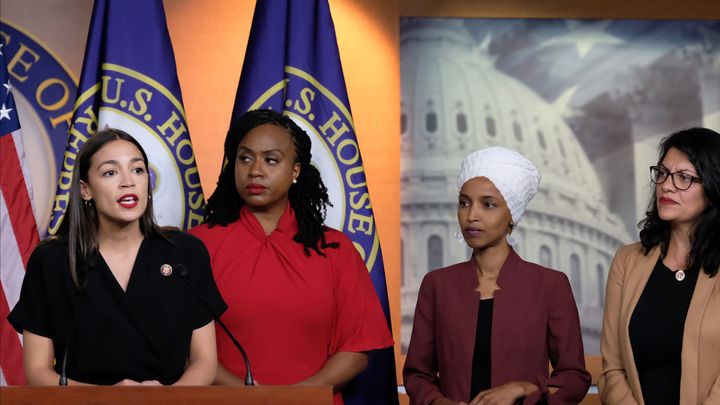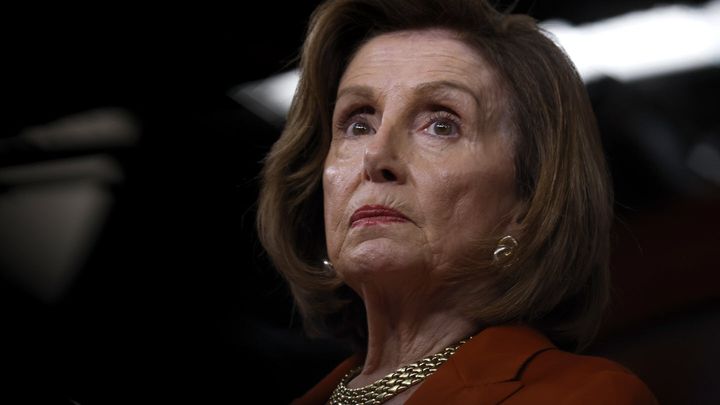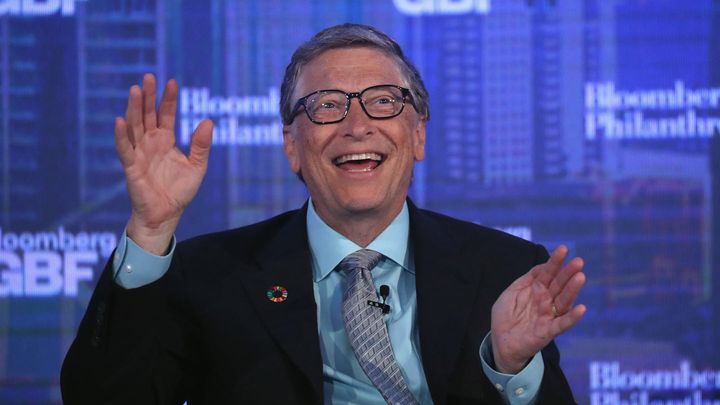In late June, 95 House Democrats voted against a bipartisan bill, supported by House Speaker Nancy Pelosi, to fund President Donald Trump’s border enforcement operation with no strings attached. But in a friendly interview with opinion columnist Maureen Dowd after the vote, Pelosi singled out just four of them—a group of progressive women of color in her caucus who have become known as “the Squad.”
“All these people have their public whatever and their Twitter world,” she said, referring to “the Squad” of freshmen Reps. Alexandria Ocasio-Cortez (D-N.Y.), Ilhan Omar (D-Minn.), Ayanna Pressley (D-Mass.), and Rashida Tlaib (R-Mich.). “But they didn’t have any following. They’re four people, and that’s how many votes they got.”
According to new second-quarter campaign finance reports, these four women’s “public whatever” appears to be thousands of individual campaign donors, a majority of whom gave “small” donations of $200 or less. Meanwhile, bankrolling the campaigns of House Democratic leaders were the PACs of hundreds of corporations, trade associations, and non-union, industry-related groups (collectively referred to as “corporate-related PACs” for the rest of this article).
While “Squad” members raised their campaign cash with virtually no corporate-related PAC assistance, the House Democratic leadership—Speaker Pelosi and Reps. Cheri Bustos (D-Ill.), James Clyburn (D-S.C.), Steny Hoyer (D-Md.), Hakeem Jeffries (D-N.Y.), and Ben Ray Luján (D-N.M.)—raised nearly $1.2 million from 344 corporate-related PACs. Just 14.1% of the total amount they raised from direct campaign contributions came in the form of small donations.
Ocasio-Cortez, Omar, Pressley, and Tlaib collectively raised more than $1.4 million from contributions of $200 or less from April through June, making up 61% of their total contributions. The group’s contribution total and high percentage of small donations was buoyed by Ocasio-Cortez, whose more than $1.2 million haul makes her one of the top fundraisers among House Democrats. (She raised more money via direct campaign contributions than Pelosi but took in slightly less overall.)
Assistant Speaker Luján is the only Democratic House leader who pledged to reject corporate PAC money, which he did in May. He has honored that pledge, having reported no contributions from PACs of individual corporations. He did, however, receive close to $30,000 from the PACs of mostly corporate trade associations—lobbying groups that typically have paying member companies—such as the Council of Insurance Agents & Brokers ($10,000), which counts BB&T Insurance Services and BancorpSouth Insurance Services as members, and the National Association of Real Estate Investment Trusts. Plenty of Democrats who swore off corporate PACs also accept money from trade groups, although to be fully free of corporate campaign donations a member would need to decline these contributions as well.
Among “the Squad,” only Tlaib had a corporate-related contribution. The PAC of the Arab American Pharmacist Association, a Michigan-based trade group of independent pharmacists, gave her campaign $2,800.
O Small Donor, Where Art Thou?
In terms of small donation percentage in the second quarter, Democratic Caucus Chair Jeffries has the lowest; only 2% of his fundraising total came via donations of $200 or less. Out of $847,108 in second-quarter contributions, Jeffries received just $16,604 in small donations. Clyburn’s percentage was nearly the same (2.1%), while 3.9% of Hoyer’s contribution total was due to small donations.
The four “Squad” members raised $1,415,015 in small donations in the second quarter, making up 61.1% of their contribution total—more than twice the small-donation total of the six Democratic House leaders. Ocasio-Cortez led all incumbent members of Congress with 83.7% of her contribution total made up of donations of $200 or less. On the whole, donors who give smaller contributions to candidates are more diverse in terms of race, gender, age, and income.
Last week, the House Democrats’ Twitter account, managed by Jeffries, posted an out-of-context tweet from Ocasio-Cortez’s chief of staff in an effort to discredit her. On Tuesday, Jeffries defended the tweet, telling reporters, “The tweet speaks for itself.” There have been rumors of a progressive primary challenger to Jeffries backed by the Ocasio-Cortez-aligned Justice Democrats, although none has emerged.
The Democratic Party establishment finds itself in a tough position as its leaders age and face mounting accusations of being too easy on big corporations and President Trump, whom Pelosi has refused to impeach despite numerous instances of obstruction of justice and other malfeasance. In sharp contrast, the young “Squad” members have broad popular support and fresh, populist ideas. All four strongly advocate for Trump’s impeachment, for single-payer health care, and for a Green New Deal to save the planet from climate catastrophe.
As the two sides battle it out for the party’s future, they are relying on their core constituencies to help them along: For “the Squad,” it’s the diverse groups of people who helped them win congressional seats for the first time in 2018. For the establishment, it’s the corporations that have sent lobbyists to their offices and checks to their campaigns for many years.



